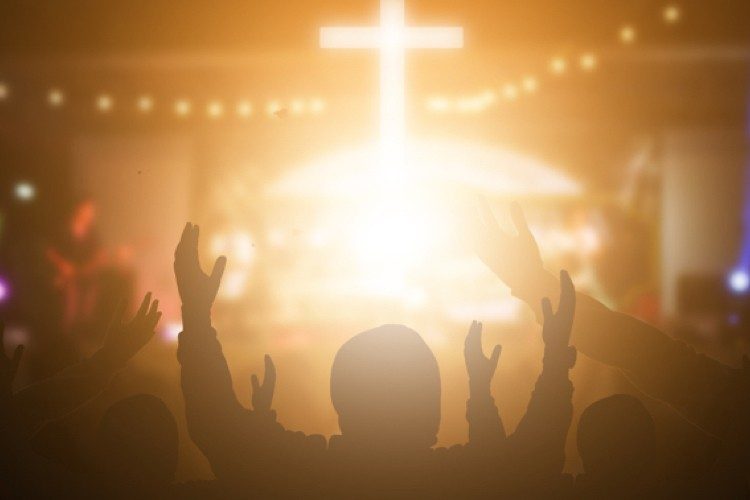
After multiple rebukes from the U.S. Supreme Court, California Governor Gavin Newsom (D-Calif.) has finally lifted all capacity restrictions on houses of worship this week.
The California Department of Public Health guidelines continue to recommend capacity limitations of 25 percent for the two highest levels of the state’s four-tier COVID-19 restrictions, ABC News reports, and 50 percent for the two lower levels, but no longer mandates capacity restrictions.
“In response to recent judicial rulings, effective immediately, location and capacity limits on places of worship are not mandatory but are strongly recommended,” reads California’s newly revised COVID-19 guidance. “The linked guidance is in the process of being updated. All other restrictions in the guidance remain in place.”
The revision came after the U.S. Supreme Court delivered five rulings against the state’s COVID restrictions that unfairly targeted religious activities.
The most recent ruling was delivered last week, when the U.S. Supreme Court struck down California’s restriction that limited religious and non-religious gatherings in homes to no more than three households, NPR reported. The Court’s 5-4 decision declared the government cannot limit religious gatherings without first proving they pose a greater danger than secular gatherings that have been permitted to remain open, such as stores and movie theaters.
“Otherwise, precautions that suffice for other activities suffice for religious exercise too,” the majority opinion said.
According to the majority ruling, California “treats some comparable secular activities more favorably than at-home religious exercise, permitting hair salons, retail stores, personal care services, movie theaters, private suites at sporting events and concerts and indoor dining at restaurants to bring together more than three households at a time.”
The High Court took up the case as part of its “shadow docket,” according to University of California, Hastings College of Law professor Rory Little. These types of cases are processed rapidly because the court has deemed them an “emergency.”
The ruling came months after the Supreme Court blocked California’s ban on indoor religious services during the pandemic, though it let stand the ban on singing and chanting indoors.
The Supreme Court has consistently ruled in favor of religious freedoms since November 2020, Yahoo News notes, when it ruled against limitations on New York’s houses of worship in Roman Catholic Diocese of Brooklyn v. Cuomo, citing similar reasoning to that of last week’s judgment against California.
The decision in the Brooklyn Diocese case prompted several victories for churches throughout California embroiled in legal battles against the state’s restrictions.
On December 3, the Court sided with Harvest Rock Church, Inc. against Governor Newsom’s COVID restrictions, which the church argued were being discriminatorily applied to churches.
“For the governor, COVID-19 restrictions are apparently optional and penalty free. But for Churches or anyone worshipping in their own home with someone who does not live there, COVID-19 restrictions are mandatory and enforced via criminal penalties,” lawyers for Harvest Rock wrote in their request to the Supreme Court.
The High Court directed a federal judge and the Ninth Circuit Court panel to reconsider the rulings against Harvest Rock based on its judgement for the Brooklyn Diocese.
In December, the U.S. Supreme Court instructed the Ninth Circuit Court of Appeals to vacate a district ruling against the South Bay United Pentecostal Church in Chula Vista owing to the precedence set in the Brooklyn Diocese case.
“In light of the Supreme Court’s orders in Harvest Rock Church, Inc. v. Newsom … and Roman Catholic Diocese of Brooklyn v. Cuomo … we vacate the district court’s October 15, 2020, order denying the motion for injunctive relief filed by South Bay United Pentecostal Church (South Bay), and remand to the district court for further consideration of this matter,” the three-judge panel ruled.
Special Counsel Christopher Ferrara of the Thomas More Society, which represented the plaintiffs in Robinson v. Murphy, noted at the time the Supreme Court was presenting “a very clear message” that governments cannot discriminatorily target houses of worship with restrictions that are not applicable to “comparable secular activities.”
It took five tries before the message stuck. This week’s revision to capacity restrictions at houses of worship marks a significant First Amendment victory in California.
The Center for American Liberty, which brought three of the five lawsuits in which the Supreme Court ruled against California, celebrated California’s move to lift capacity restrictions on houses of worship.
“Governor Newsom should have done this a long time ago,” said Center for American Liberty founder and CEO Harmeet K. Dhillon in a statement to the Daily Wire. “For over a year, the state of California has targeted the faith community for discriminatory treatment depriving them of their fundamental right to worship. It shouldn’t take a decision from the Supreme Court, much less five decisions, for Gov. Newsom to realize that what he has been doing is unconstitutional.”
Dhillon continued, “While we celebrate the lifting of restrictions today, our work is not done. We will not relent until we have sufficient precedent from the courts prohibiting this civil liberties crisis from ever happening again.”




